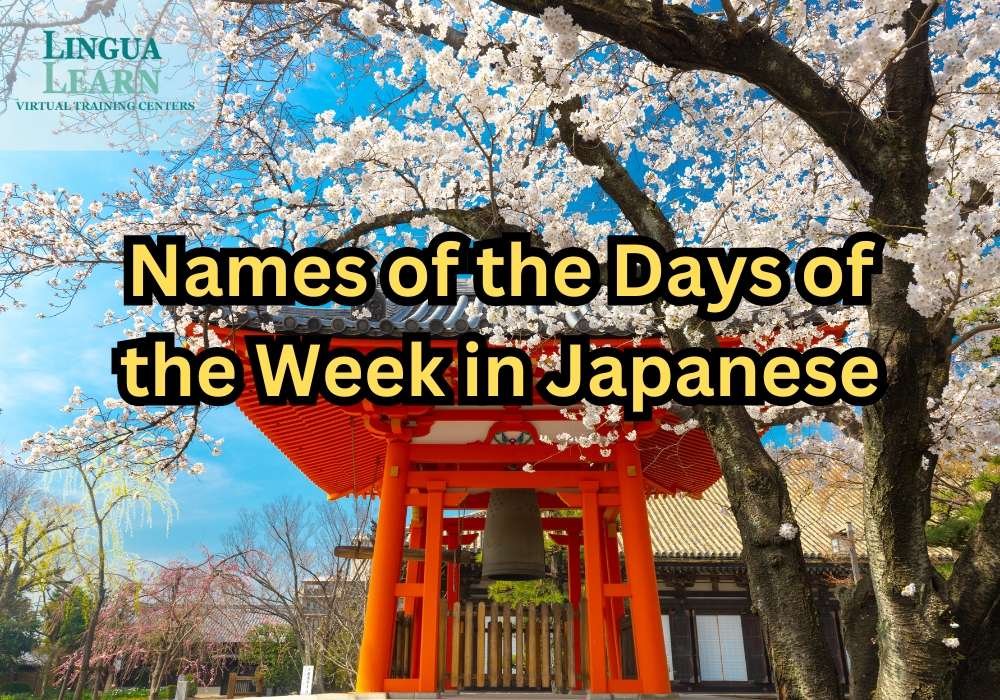
Learning the names of the days of the week in Japanese is a fantastic way to deepen your understanding of the language and culture. Whether you’re planning a trip to Japan, studying Japanese, or just curious, knowing these words can be incredibly useful. The Days of the Week in Japanese: An Overview The days of […]
Learning the names of the days of the week in Japanese is a fantastic way to deepen your understanding of the language and culture. Whether you’re planning a trip to Japan, studying Japanese, or just curious, knowing these words can be incredibly useful.
The days of the week in Japanese are rooted in ancient Chinese astrology and are associated with the five classical elements (wood, fire, earth, metal, water) and celestial bodies (the sun and moon). Here are the names of the days in Japanese:

Understanding the etymology behind the names of the days in Japanese can make it easier to remember them. Each day combines an element or celestial body with “曜日” (yōbi), which means “day of the week.” For example, “月” (getsu) means moon, and “日” (nichi) means sun.
Pronouncing the names of the days in Japanese can be tricky for beginners. Here are some tips to help you out:
Knowing the names of the days in Japanese is not just about memorization; it’s about application. Try using them in simple sentences like:
For those who want to take their learning to the next level, writing the days in kanji is a great exercise. Practice writing each day multiple times to get familiar with the characters.
Learning Japanese opens up a world of opportunities. At Lingua Learn, we offer comprehensive courses tailored to all levels. Whether you’re a beginner or looking to advance your skills, our experienced instructors and immersive curriculum will guide you every step of the way. Plus, knowing Japanese can enhance your career prospects, as many employers on JobStreet seek bilingual candidates.
The names of the days of the week in Japanese are not only fascinating but also an essential part of mastering the language. By understanding their meanings, practicing pronunciation, and using them in conversation, you can enhance your Japanese language skills. Ready to dive deeper into Japanese? Join us at Lingua Learn and start your language learning journey today!
www.lingua-learn.com – www.lingua-learn.ae – www.lingua-learn.id